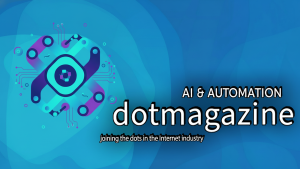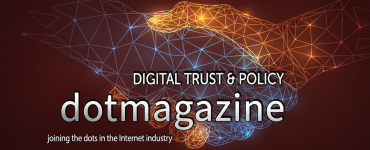A revolution is unfolding across European industry, but its true story isn’t being written in code. It’s being written in boardrooms, on factory floors, and in the minds of policymakers grappling with a fundamental question: How do we harness the raw power of AI and automation without losing our human grip on the steering wheel?
The perspectives in this issue of dotmagazine point to a clear answer that automation succeeds when humans remain at the center. As Europe moves forward with new regulations like the AI Act, organisations are discovering that keeping humans in control is a practical challenge, not just a philosophical ideal.
Regulation, uncertainty, and human agency
Germany offers a telling example: one year after the AI Act came into force, many companies still face unclear rules and overlapping obligations. Oliver Süme, eco Chair of the Board, warns that this regulatory uncertainty is one of the biggest barriers to AI adoption, slowing investment and innovation and putting Germany at risk of falling behind in the global AI race. As Melanie Ludolph from Fieldfisher adds, convenience can quietly cost us freedom. Algorithms influence what we read, what we buy, and what we believe. She argues that regulation should not be seen as a barrier but as a design element that ensures people stay in control of the systems meant to serve them.
New possibilities for human–AI collaboration
As regulation helps safeguard human agency, it also opens new possibilities for how we create and collaborate with technology. Silke Kanes, eco’s new Board Member gives the example of Vibe Coding, an AI-driven approach that turns natural language into code, while maintaining human oversight. eco’s Andreas Weiß and Lauresha Toska build on this example, showing how automation can scale securely and maintain compliance through Federation Architecture Patterns and low-code orchestration. This isn’t about machines replacing programmers; it’s about democratizing creation, inviting non-technical teams into the process.
Trustworthy data foundations
This human-centric alignment is essential across industries. As Rüdiger Eck explains, Audi’s “Data & Analytics Factory” use case shows that intelligent automation requires a trustworthy foundation. By uniting IT and business teams under a single, transparent governance framework, Audi transformed fragmented data into shared intelligence. The lesson is profound: technology thrives where people collaborate.
Europe’s mobility challenge
This principle extends from the factory floor to Europe’s roads. As Juan I. Hahn, current Head of the Mobility Competence Group at the eco Association reminds us, cars are no longer just machines – they’re becoming software on wheels. AI now powers everything from predictive maintenance to remote updates. Europe’s challenge, he argues, is to build mobility networks that are both open and secure, reflecting Europe’s commitment to privacy and digital sovereignty.
The SME implementation gap
Yet as Europe strives to balance innovation with security and privacy in its mobility networks, not all organisations face the same challenges. For small and medium-sized enterprises, the gap between regulation and implementation remains wide. Thomas Amberg from Ynvolve observes that many SMEs that successfully navigated GDPR are now struggling with the complexity of AI governance. Practical tools, operational guidelines, and regulatory sandboxes are urgently needed to help businesses turn policy into progress.
The rise of Agentic AI
As organizations of all sizes grapple with the complexities of AI governance, the conversation is shifting from compliance alone to the transformative potential of intelligent systems. At the forefront of this shift is what IBM’s Stephan Schnieber calls “Agentic AI” – systems capable of reasoning and adapting with minimal human prompting. His message captures our moment perfectly: the goal of automation is no longer mere efficiency. It is about building partners that can think with us, enhancing human potential rather than replacing it.
The path forward for Europe is therefore not a simple binary between progress and precaution. It is a nuanced, human-directed journey. By staying true to values such as fairness, trust, and openness, Europe can shape an automated future that remains distinctly human.




